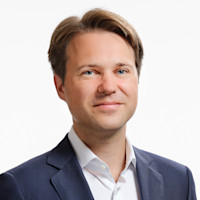New year starts for Dutch manufacturing industry with more optimism

The Nevi Dutch Manufacturing PMI improved by no less than two points in December 2024, from 46.6 to 48.6. Production fell only slightly, the number of new orders fell steadily, but at a slower pace than in the previous month. Optimism about the coming year has increased.
In 2025, demand may pick up somewhat thanks to falling interest rates, ABN AMRO expects. In particular, demand from the chip industry may increase as soon as chip manufacturers invest in expanding capacity. Manufacturers of machines, electrotechnical parts and metal products can benefit from this. Lower interest rates may also increase demand for building materials, especially towards the end of the year.
Crisis energy-intensive industry
Many energy-intensive factories are in crisis. The high energy prices in Europe have affected the competitive position of companies, especially in the chemical and basic metal industries. The European steel industry is suffering from a combination of weak demand from a number of key markets (such as automotive and construction) and the slump in Chinese construction, which is making Chinese steel producers more active in the European market.
Wave of bankruptcies
Given this cocktail of weak demand and high energy costs, it is questionable whether multinationals are still willing to invest in energy-intensive companies in Europe. Making industry more sustainable does require substantial investments. In the Netherlands, grid tariffs are also considerably higher than in neighbouring countries. Minister Sophie Hermans (Climate and Green Growth) has billions in subsidies ready to make industry more sustainable. Like the Rutte IV cabinet, the Schoof cabinet wants to make tailor-made agreements with the largest emitters, but the talks are difficult. Before Christmas, the minister announced the first deal, with chemical firm Nobian, which will invest 645 million euro with a subsidy of 185 million. As far as the tailor-made agreements are concerned, 2025 must be the year of truth, especially in view of the necessary investments in infrastructure, such as the electricity grid.
The plastics sector is also struggling. Companies that recycle plastic waste are struggling with high energy costs and cheap competition from Asia. Chinese competitors, unimpacted by by oil sanctions, can use cheap Russian oil, making the production of virgin plastic significantly cheaper than the production of plastic recyclate. This led to a wave of bankruptcies at plastic waste processors at the end of 2024. New rules regarding sustainability also lead to uncertainty. For example, the Netherlands intends to introduce the National Circular Plastic Standard (NCPN) in 2027. In doing so, the Netherlands wants to anticipate the European Packaging and Packaging Waste Regulation (PPWR), which is expected to enter into force in 2030, which includes minimum recycled content quotas. The mandatory recycled content quota should support the demand for sustainable, circular plastic. However, it is expected that this unilateral cost increase will worsen the competitive position of Dutch plastics processors. Foreign manufacturers, to whom the blending obligation does not apply, are given the opportunity to increase their sales and market share in the Netherlands.
Negotiating with Trump
To top it all off, the incoming US president Donald Trump is also causing uncertainty. The measures he has previously announced, such as new import duties on foreign products, could have consequences for international trade and for the exports of European industry. It is likely that the European Commission will negotiate with the experienced dealmaker shortly after Trump's inauguration on January 20. In 2018, import duties announced by Trump were taken off the table after negotiations with the then president of the European Commission, Jean-Claude Juncker. The soup is expected to be eaten less hot in the end, but Trump's return will lead to an uncertain situation anyway.The recovery of Dutch industry in 2025 therefore depends mainly on the growth of the chip market, which is mainly driven by growing investments in artificial intelligence. ABN AMRO expects the Dutch industry to grow by 4 percent this year.
